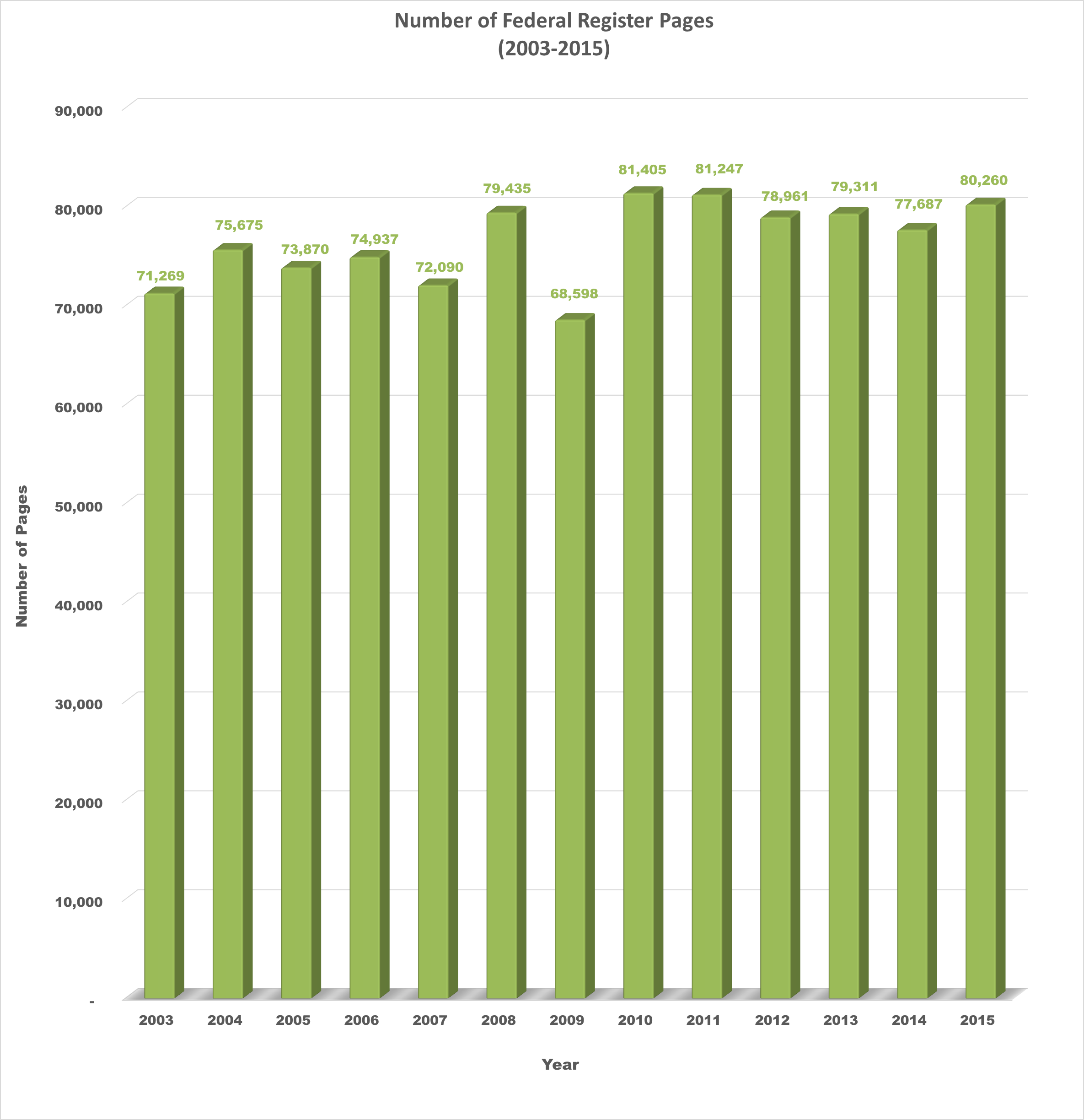Empowered by President-elect Donald Trump, Republicans lawmakers are moving to gut the vast regulatory powers federal agencies enjoyed during the Obama administration.
On Wednesday, the GOP-controlled House passed the Regulatory Accountability Act which puts a ceiling on the regulatory costs coming out of Washington by instructing federal agencies to craft the "least expensive" rules they possibly can. It passed 238-183 on a largely party line vote with five Democrats crossing the aisle.
This would give Congress more control over federal agencies.
“Some of the most significant decisions in Washington --- those that most affect the lives of the public --- are made by those who don’t stand for election,” House Majority Leader Kevin McCarthy (R-Calif.) said.
“What happens when the EPA imposes rules that deprive people of their property rights? Or when the Department of Health and Human Services tries to force nuns to violate their religion? Or when the VA perpetuates a system that lets veterans die while they wait for care?” McCarthy asked.
“The people can’t vote out the bureaucrats who write rules at the EPA or at the Department of Health and Human Services. They can’t vote out bad leaders at the VA,” he added. “And these bureaucrats know it.”
Regulatory reform is a key part of Trump’s economic agenda, and Republican lawmakers are working quickly to reshape the way in which regulations are developed before the president-elect takes office next Friday.
McCarthy indicated the House would begin repealing specific regulations after the inauguration.
"The Federal Register is now the length of 80 King James Bibles," McCarthy said, referring to the book where new rules are published.
Since the beginning of the year, the House has passed three regulatory reform bills that limit the authority of federal agencies.
Last week, lawmakers approved the Midnight Rules Relief Act, which blocks the Obama administration from publishing expensive rules at the last-minute before Trump takes over next Friday. While the Regulations from the Executive in Need of Scrutiny (REINS) Act gives Congress the power to reject rules it dislikes with a simple majority vote.
The rules onslaught continued Wednesday as the House passed the Regulatory Accountability Act, which is part of a larger package of reform bills that passed in previous sessions of Congress but were vetoed by President Obama.
“The Obama administration abused regulation to force its will on the American people,” said Rep. Bob Goodlatte (R-Va.), the architect of the bill. “The assembling Trump administration promises to wipe out abusive regulation.”
With Trump about to enter the White House, Republicans are hopeful they can shove these regulatory reform bills through Congress. But they may run into resistance in the Senate, where Democrats could filibuster.
Rep. Steve Cohen (D-Tenn.) warned that some Americans “will not survive” the weaken of regulations.
“The side that loses is the consumers and the folks that will be injured or killed because of a lack of regulation,” Cohen said. “Whether it’s food safety, whether it’s water safety, whether it’s air safety, whether it’s toys, there’s always a side that loses.”
The other bills passed Wednesday along with the Regulatory Accountability Act, include:
—The Require Evaluation before Implementing Executive Wishlists (REVIEW) Act prevents federal agencies from issuing expensive regulations while they are facing court challenges. Once the legal battles are resolved, the rules could move forward.
—The Separation of Powers Restoration Act would prevent courts from deferring to the regulatory interpretations of federal agencies, which makes it difficult for those rules to be challenged. Goodlatte said the current law “rubber stamps” regulations.
—The All Economic Regulations are Transparent Act (ALERT) Act instructs federal agencies to publish costs estimates for rules they are working on while they are still in development.
—The Providing Accountability Through Transparency Act instructs federal agencies to publish “plain language” summaries of their rules online, so the “public can understand what the agencies are actually proposing to do.”
“Our constituents should not need a law degree to understand the rules they’re supposed to follow,” said Rep. Blaine Luetkemeyer (R-Mo.), who sponsored the bill.
“The American people deserve to be informed about the rules and regulations being proposed by their government,” he added.
—The Small Business Regulatory Flexibility Improvements Act instructs federal agencies to account for not only the direct costs of their rules, but also the indirect costs and cumulative impacts they will have on small businesses.
On Wednesday, the GOP-controlled House passed the Regulatory Accountability Act which puts a ceiling on the regulatory costs coming out of Washington by instructing federal agencies to craft the "least expensive" rules they possibly can. It passed 238-183 on a largely party line vote with five Democrats crossing the aisle.
This would give Congress more control over federal agencies.
“Some of the most significant decisions in Washington --- those that most affect the lives of the public --- are made by those who don’t stand for election,” House Majority Leader Kevin McCarthy (R-Calif.) said.
“What happens when the EPA imposes rules that deprive people of their property rights? Or when the Department of Health and Human Services tries to force nuns to violate their religion? Or when the VA perpetuates a system that lets veterans die while they wait for care?” McCarthy asked.
“The people can’t vote out the bureaucrats who write rules at the EPA or at the Department of Health and Human Services. They can’t vote out bad leaders at the VA,” he added. “And these bureaucrats know it.”
Regulatory reform is a key part of Trump’s economic agenda, and Republican lawmakers are working quickly to reshape the way in which regulations are developed before the president-elect takes office next Friday.
McCarthy indicated the House would begin repealing specific regulations after the inauguration.
"The Federal Register is now the length of 80 King James Bibles," McCarthy said, referring to the book where new rules are published.
Since the beginning of the year, the House has passed three regulatory reform bills that limit the authority of federal agencies.
Last week, lawmakers approved the Midnight Rules Relief Act, which blocks the Obama administration from publishing expensive rules at the last-minute before Trump takes over next Friday. While the Regulations from the Executive in Need of Scrutiny (REINS) Act gives Congress the power to reject rules it dislikes with a simple majority vote.
The rules onslaught continued Wednesday as the House passed the Regulatory Accountability Act, which is part of a larger package of reform bills that passed in previous sessions of Congress but were vetoed by President Obama.
“The Obama administration abused regulation to force its will on the American people,” said Rep. Bob Goodlatte (R-Va.), the architect of the bill. “The assembling Trump administration promises to wipe out abusive regulation.”
With Trump about to enter the White House, Republicans are hopeful they can shove these regulatory reform bills through Congress. But they may run into resistance in the Senate, where Democrats could filibuster.
Rep. Steve Cohen (D-Tenn.) warned that some Americans “will not survive” the weaken of regulations.
“The side that loses is the consumers and the folks that will be injured or killed because of a lack of regulation,” Cohen said. “Whether it’s food safety, whether it’s water safety, whether it’s air safety, whether it’s toys, there’s always a side that loses.”
The other bills passed Wednesday along with the Regulatory Accountability Act, include:
—The Require Evaluation before Implementing Executive Wishlists (REVIEW) Act prevents federal agencies from issuing expensive regulations while they are facing court challenges. Once the legal battles are resolved, the rules could move forward.
—The Separation of Powers Restoration Act would prevent courts from deferring to the regulatory interpretations of federal agencies, which makes it difficult for those rules to be challenged. Goodlatte said the current law “rubber stamps” regulations.
—The All Economic Regulations are Transparent Act (ALERT) Act instructs federal agencies to publish costs estimates for rules they are working on while they are still in development.
—The Providing Accountability Through Transparency Act instructs federal agencies to publish “plain language” summaries of their rules online, so the “public can understand what the agencies are actually proposing to do.”
“Our constituents should not need a law degree to understand the rules they’re supposed to follow,” said Rep. Blaine Luetkemeyer (R-Mo.), who sponsored the bill.
“The American people deserve to be informed about the rules and regulations being proposed by their government,” he added.
—The Small Business Regulatory Flexibility Improvements Act instructs federal agencies to account for not only the direct costs of their rules, but also the indirect costs and cumulative impacts they will have on small businesses.

 they should stop him
they should stop him


 this is all true
this is all true
